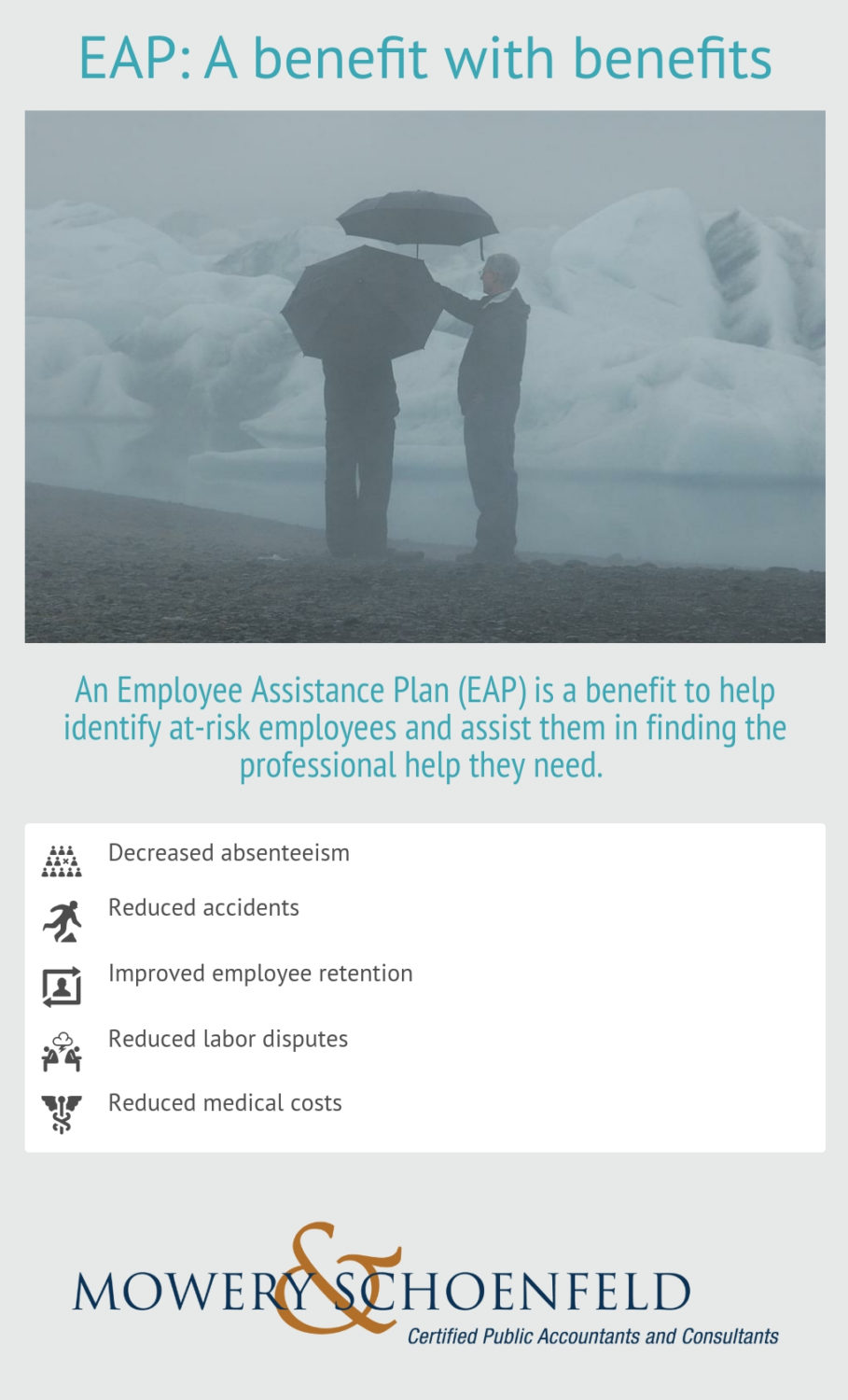A good basketball team is at its best when its top players are on the floor. Similarly, a company is the most productive, efficient, and innovative when its best employees are in the right positions, doing great work.
Unfortunately, it's not uncommon for even your best employees to battle personal problems, such as substance dependence, financial and legal woes, or mental health issues. These struggles can negatively affect their productivity and the working environment around them. One way your company can help is by offering a benefit called an Employee Assistance Program (EAP).
A benefit with benefits
An EAP helps identify at-risk employees and assist them in finding the professional help they need. An employee who enrolls in the EAP may, for example, immediately be put in touch with a counselor or social worker.
One of the most important things that you can do for your employees is to help them when they have an issue. It may be providing financial assistance, or even just a reliable resource that can help them with their problem. All of this can be handled on a confidential basis. Helping someone on an important issue can build a lasting beneficial relationship.
According to the U.S. Department of Labor's Office of Disability Employment Policy, EAP's have been shown to:
- Decrease absenteeism
- Reduce accidents and Workers' compensation claims
- Improve employee retention
- Reduce labor disputes, and
- Significantly reduce medical costs arising from early identification and treatment if individual mental health and substance abuse issues.
An EAP is not, of course, a substitute for health care insurance.
Vendors available
You don't have to create and administer an EAP on your own. A wide variety of vendors are available. But, as is the case with any benefit, it's important to choose a vendor carefully and make sure you get good value for your investment.

